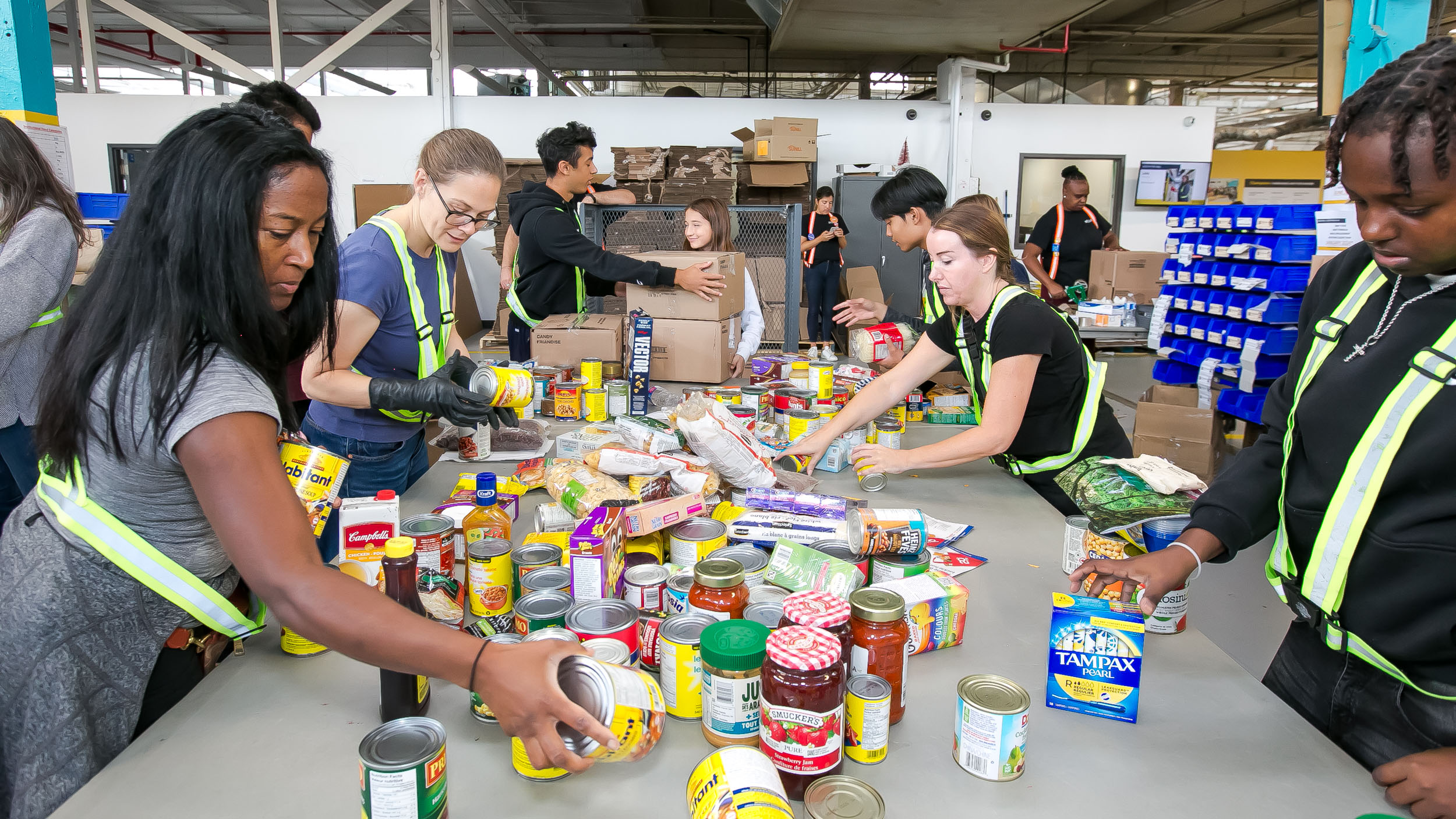More Ontario workers find it nearly impossible to escape poverty due to housing challenges, disabilities, wage stagnation and low social assistance rates, food bank advocates said.
“It’s this person who’s working as hard as they can and still can’t make ends meet,” said Neil Hetherington, the CEO of Daily Bread Food Bank. “That’s not fair.”
The Daily Bread Food Bank sees over 12,500 new food bank users each month. Last month, client visits were at a record-breaking 275,000.
More than half of individuals have some post-secondary education, Hetherington said. Many food bank users today have precarious employment or multiple jobs.
“The thought that you go to school, you work hard, you get a job, you’ll be fine? That isn’t true anymore,” Hetherington said.
On Sept. 26, Food Banks Canada released its first-ever Poverty Report Cards to compare how provinces perform and provide a roadmap to zero poverty, the root cause of hunger.
The report found that 43 per cent of Ontarians say they’re financially worse off than a year ago.
From 2021 to 2022, there were an average of over 561,000 cases (families and single adults) and 855,000 beneficiaries (individual claimants, their partners and dependent children) in Ontario’s social assistance programs, according to research by the Caledon Institute of Social Policy.
“They would need their incomes increased by $17,000 just to be considered not poor, never mind stable,” said Claudia Calabro, community organizer at the Income Security Advocacy Centre, in an email interview with Humber News.
A single person’s income on Ontario Works (OW) is $733 and has remained so since 2018. The Ontario Disability Support Program (ODSP) provides $1,308 a month, only slightly more.
Food Banks Canada recommends increasing both. Calabro said rates should be at least doubled to “give people a fighting chance” to cover all bills, pay off debts, and get ahead in life.
OW and ODSP recipients may only earn so much before their social support is clawed back, which “disincentivizes work,” she added, noting that the minimum wage, now $16.55, should be raised above the inflation rate.
“The provincial government has shown that they are not interested in making sure that everyone has the income they need to live a dignified life, whether or not they are able to work,” Calabro said.
She added discrimination that results in pay equity issues and inflexible, unaccommodating workplaces put people in a tight spot.
Single parents with two part-time jobs and kids who could benefit from emergency food relief may not be able to afford to shop when food banks are open, explained Hetherington of the Daily Bread.
The poverty report cards also found that 70 per cent of food bank users are renters. Nearly two in five Canadians are paying more than a third of their income on housing.
In Toronto, a one-bedroom apartment costs, on average, $2,500 to rent, according to Rentals.ca.
“The first thing in the month people do is pay the rent and utilities to keep the roof over their heads. If there’s enough money for food, then food and other basic necessities,” says Ricardo Tranjan, political economist and senior researcher with the Canadian Centre for Policy Alternatives.
Otherwise, “they will go to the food bank. They will send their kids to school with boots that are not warm enough,” Tranjan said. “These are some sacrifices.”
The Poverty Report Cards help policymakers and advocates compare how governments are doing, see what policies are working well, and have evidence at hand to advocate for effective policies that tackle poverty. For more info, visit: https://t.co/GZfWVvIAsu pic.twitter.com/H0MRHaUWe5
— Food Banks Canada | Banques alimentaires Canada (@foodbankscanada) September 26, 2023
Food Banks Canada also recommended a provincial housing accelerator fund with tax and grant incentives and a land acquisition fund to fast-track affordable housing development.
“Supply is necessary, but it is not sufficient,” Tranjan said.
The author of The Tenant Class said funds should be allocated to non-profit and cooperative housing providers for a more immediate and lasting impact, along with enacting strong rent controls and extending tenants’ collective bargaining rights.
“When we remove profit from the equation, [housing becomes] cheaper and more widely accessible, like health care, education and child care,” said Tranjan, who previously managed Toronto’s Poverty Reduction Strategy.
He said cities like Ottawa and Montreal have a long history of co-ops that should be reviewed, funded and scaled.
Tranjan said tenant tenure in one is longer than that of private housing because of the security it offers.
“We know how to fix this,” Tranjan said. “The real challenge is a political one, to build enough political power and pressure so elected officials take that path.”
In light of the report, Phil Ozga, chief network and government relations officer at Food Banks Canada, said in a statement that governments at all levels should find a new sense of urgency and work together to find solutions.
Hetherington said he has hope and optimism for this country.
“(But) if things continue to go without social policy reform, then we are heading into a dark place,” Hetherington said.

